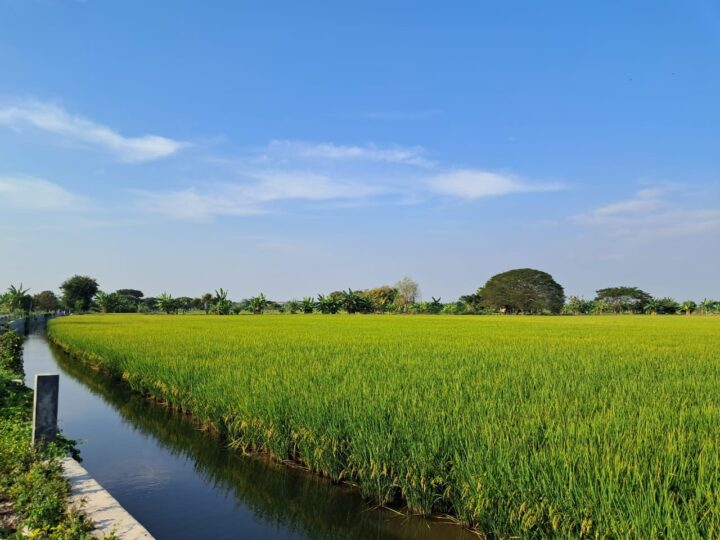Summary

Integration of shrimp and rice farming in Indonesia (picture: Ayu Pratiwi)
The project will analyze how knowledge co-creation among stakeholders can enhance societal resilience in the Global South and North, and how EU and national-level sustainability regulations may impact the transformation of the critical food industries. These analyses will focus on the sub-themes as follows:
Theme 1: Trade policies and sustainable development
The sub-theme explores the interplay of trade and sustainability concerning the protection of environment and labour through EU free trade agreements (FTA). Two cases are analyzed: 1) the business perspective of the EU-Korea FTA on labour issues and 2) the implementation of the EU-Japan FTA in the context of organic food export from the EU to Japan.
Theme 2: Knowledge co-creation and regional development
This sub-theme focuses on multi-stakeholder collaborations at the local level to strengthen societal resilience through knowledge co-creation. Knowledge co-creation means the joint production of innovation, which has the potential to contribute to economic development. We explore cases in three countries – Finland, Indonesia, and Colombia. The cases concern migrant employment and entrepreneurship in new localities, information sharing in virtual networks amongst smallholder food producers, and collaboration among MNEs and local stakeholders.
Theme 3: Regulation-based industry transformation
This sub-theme concerns the EU and national-level regulations to strengthen the security and safety of supply in pharmaceutics and food, respectively, thereby affecting industry transformation in the two sectors. The first study explores the need for the EU to restructure the pharmaceutical industry, which is dependent on Asia-based supply chains. The second study investigates the EU regulation on microplastics and the diverse perceptions and responses of consumers and the general public in Finland.
The expected output contains 8 research papers on the sub-studies slated for publication in academic journals (A1), the dissemination of results in national and international conferences, articles for professional magazines and blogs for the wider public in Finnish, English, Spanish, and Indonesian, teaching at team members’ courses at the University of Turku, and final seminar with invited parties representing academia, businesses, Embassies, government officials, as well as NGOs.